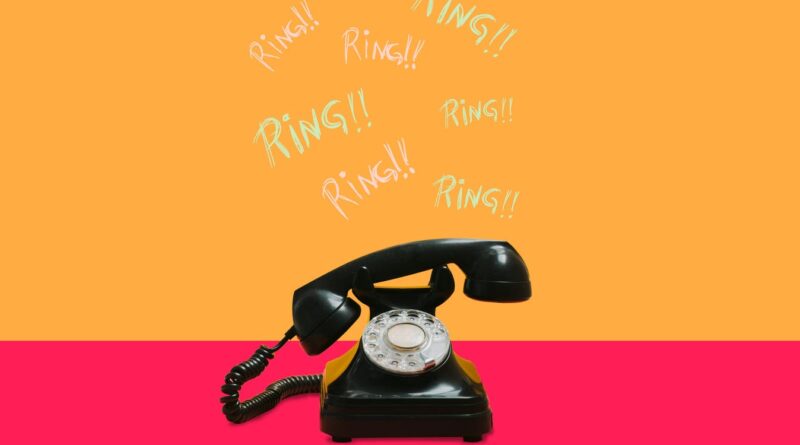A psychologist describes a new phobia on the rise: “Nomophobia”
Have you ever thought about what your life would be like without your phone? Some may see a life of peace without distraction, while others may see a life of less comfort and connection.
Others, however, may feel completely intimidated by the idea. Psychological research has discovered a new fear: “nomophobia,” where individuals are filled with dread, anxiety, and panic at the thought of being without a cell phone.
To measure the severity of this phobia and its impact on daily life, researchers have developed a test designed to evaluate and diagnose nomophobia. This tool not only illuminates the prevalence of this modern anxiety, but also encourages a wider discussion about our dependence on technology and its effects on mental well-being.
What is “nomophobia?”
“Hiring the phrasenobile pha phothe two,” the study defines nomophobia as the fear of being away from cell phone connectivity. Although it is not yet considered a legitimate mental disorder like other specific phobias—such as fears of animals, storms, heights, etc.—, the conceptualization of nomophobia is based on the definitions of the Diagnostic Manual of Mental Disorders.
Research has determined that the symptoms of nomophobia include many of those seen in other specific phobias, such as anxiety, tremors, sweating, agitation, and difficulty breathing. Also, those with low self-esteem and extroversion may be more prone to excessive smartphone use and therefore more likely to suffer from nomophobia.
According to a study that aimed to review statistics on the prevalence of the phobia, approximately 21% of the adult population suffers from severe nomophobia, and about 71% of the population has moderate nomophobia. Researchers have revealed that college and university students are the most affected by the disorder, showing an alarming prevalence of 25%.
Dealing with nomophobia can be incredibly difficult, given the ubiquitous role smartphones play in modern life. The constant connectivity they provide has become part of daily routines, making the mere thought of separation a source of intense anxiety for many. In addition to causing immediate emotional distress, this phobia can also cause long-term psychological effects that can affect overall well-being.
How to know if you have “nomophobia”.
The need for tools and methods to identify nomophobia is becoming more and more essential. The prevalence of the phobia suggests a wider societal shift towards technology dependence, and raises questions about its potential effects on mental health.
As modern problems require modern solutions, a study Computers and human behavior he wanted to identify and solve the new need to deal with nomophobia. Through their research, a questionnaire for the diagnosis of nomophobia was developed and validated. To use this self-report measure, individuals rate each statement on a scale ranging from “strongly agree” to “strongly agree”:
- I would feel uncomfortable without constant access to information via phone.
- I would be upset if I couldn’t look up information on my phone when I wanted to do that.
- Not being able to get news (eg events, weather, etc.) on my phone would make me nervous.
- I would be annoyed if I couldn’t use my phone and/or its capabilities when I wanted to.
- Running out of battery on my phone would scare me.
- If I ran out of credit or hit my monthly data limit, I’d panic.
- If I had no data signal or couldn’t connect to Wi-Fi, then I would constantly check to see if I had a signal or could find a Wi-Fi network.
- If I couldn’t use my smartphone, I would be afraid to stay somewhere.
- If I couldn’t check my phone for a while, I’d feel like checking it.
If I didn’t have my phone with me:
- I would feel anxious because I could not immediately communicate with my family and/or friends.
- I would be worried that my family and/or friends could not reach me.
- I would feel nervous that I wouldn’t be able to receive texts and calls.
- I would be distressed because I couldn’t keep in touch with my family and/or friends.
- I would be nervous because I couldn’t tell if someone tried to take it from me.
- I would feel nervous because my constant connection with my family and friends would be broken.
- I would be nervous about being disconnected from my online identity.
- I would be uncomfortable because I couldn’t keep up with social media and networking.
- I would feel awkward because I couldn’t check my notifications for updates on my connections and online networks.
- I would feel nervous because I couldn’t check my emails.
- I would feel weird because I wouldn’t know what to do.
The questionnaire covers four different factors of the fear of nomophobia: inability to communicate, loss of connection, lack of access to information and refusal of comfort. Recognizing these patterns within oneself could be the first step to a healthier relationship with technology and a better understanding of one’s digital habits.
Conclusion
Identifying and dealing with nomophobia is crucial, not only for our mental health, but for society as well. Consider taking a moment to reflect on these statements and evaluate your feelings about phone use. Understanding the intricacies of your relationship with technology can empower you to make informed decisions and, if needed, seek help managing nomophobia. In a world where constant connectivity has become the norm, taking the time to assess the impact of this addiction can be a crucial aspect of maintaining your mental well-being.
Wondering if you suffer from nomophobia? Take the Nomophobia Quiz to find out: Nomophobia Questionnaire
#psychologist #describes #phobia #rise #Nomophobia
